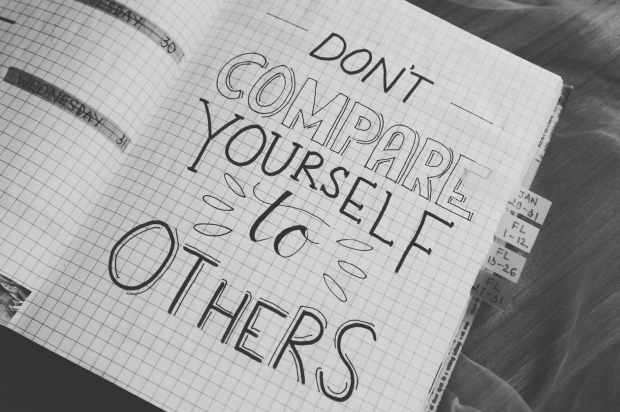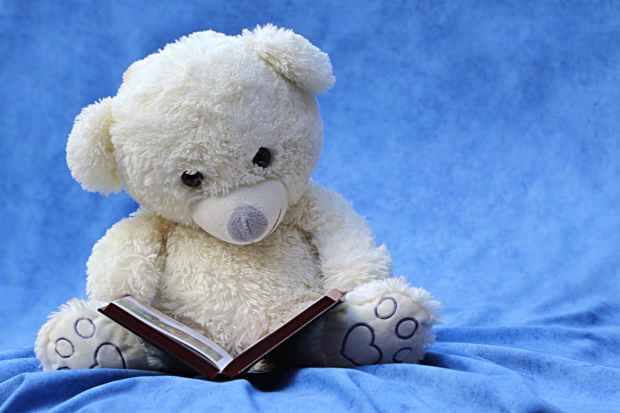Facebook General – and Chandler’s Ford Today
My CFT post tonight is the penultimate one in my 101 Things to Put into Room 101 series. I have had no trouble whatsoever in coming up with 101 things! This probably says a lot about me but never mind…
As well as the horror of ripped jeans, I consign “easy to open packets” and the ability to lose scissors into the vault of doom. The latter of course is a real pain when wanting something to cut open the supposedly easy to open packets…

How many easy to open packets are here, I wonder, and how many REALLY are easy to open? Image via Pixabay.

“We’ll be with you between 9 am and 6 pm”. Hmm… not exactly helpful is it? Image via Pixabay.

A ban on trumpet playing? Image via Pixabay

I can predict there will be more end of the world predictions! Image via Pixabay
Facebook – General
What are the signs of a really good story for you? My top five would be:-
1. Not wanting the story to end.
2. Wondering how the characters would have carried on with their lives after the story ended.
3. Re-reading the story several times. (In flash especially a second or third reading will often reveal meanings and inferences you didn’t pick up the first time. You then really get to appreciate the depth of the story in such a tight word count).
4. Wishing you had written it!
5. The ending is so apt for the story, you can’t imagine it ending in any other way.

Beautiful pens. Pexels image.

A good reading pile! Pexels image.

The delights of the open page. Pexels image.

I don’t always write directly to screen. Image via Pixabay

Escape with a good book. Image via Pixabay.

Aiming for more “magic” from my stories this year! Image via Pixabay.

Books really are the gatekeepers. Image via Pixabay.

What fictional world have you created? What ways and rules have you set for your characters? Image via Pixabay.

One of my favourite book images. They really are magical. Transportation into other worlds and around this one in a few hundred pages. Brilliant! Image via Pixabay.
Facebook – General
Where do story ideas come from? Mine come from a wide range of sources including proverbs and other sayings, books or films that I’ve loved, to objects on my desk that have particular meaning for me.
I’ve learned, over time, to be “open” to ideas and not instantly dismiss them as being “too silly” or what have you. I will explore the idea to see if I can do anything with it and nine times out of ten I can.
I’ve only abandoned an idea once or twice in all my years of writing and I know now that was due to my not having outlined enough. By outlining (and spider diagrams can be useful here), you can work out whether an idea has “legs” or not or whether it needs something else to bring it to life.
This slideshow requires JavaScript.
Facebook – General
It’s funny how often in writing we remember the bad reviews but not the good ones etc. However, there is a flip side to this. I remember my first acceptance (hello, Bridge House Publishing, for my A Helping Hand in their Alternative Renditions anthology). That will always be a special writing moment.
I can’t recall my first rejection though. Nor do I wish to! I do wish I could recall my LAST rejection but that would mean stopping writing and I’m one of those people where the pen would have to be wrested away from me. And that is the way it should be!

Hard at work. Pexels image.

Books are the keys to knowledge. Image via Pixabay

Ebooks and print – both have their own frustrations when it comes to publishing. Image via Pixabay

Let the creative process flow! Image via Pixabay

Many thanks to all who’ve reviewed FLTDBA so far.

Libraries are fabulous places. Go and explore! Image via Pixabay.

Simply stunning… image via Pixabay

Flash fiction can help you grow your writing skills for other forms of writing. Image via Pixabay.
Facebook – From Light to Dark and Back Again
Does mood affect what you write? The jury is out on this one as far as I’m concerned.
I’ve written funny stories when feeling sad (it was therapeutic doing that). I’ve written dark stories when feeling cheerful. (Not entirely sure what to make of that one).
What matters most, I think, is you have to decide what is going to be the mood of your story and then write accordingly. Deciding on the mood will then lead you to think about why you’ve chosen that and what character or type of character would be best for your tale. Sometimes I think putting a story together is exactly like putting a jigsaw together. The pieces are interconnected but you need a starting point and using mood of story can be a useful way to “kick off”.
This slideshow requires JavaScript.
Facebook – From Light to Dark and Back Again
What influences your writing? Books and stories you’ve admired by other authors? A cracking film that kept you on the edge of your seat for over two hours? A special symphony?
I expect that your influences come from all over the place. What is lovely is when a couple of them combine and you can create a new story from that combination. For example, your lead character loves gothic novels and classic railway engines. How could you use that in a story? (Could be fun finding out. Indeed, SHOULD be fun finding out!).
What is great here is that by reading/watching films/listening to music etc, you can ensure you never get stuck for an idea again. The “trick” is to read widely/watch films across many genres/listen to several types of music etc. Think of it as casting your net really widely!

The building blocks of putting a story together. Pixabay image.

The writer’s basic toolkit – image via Pixabay

Good advice – and it applies to our characters too. Image via Pixabay

Use personal reviews to help you generate character and story outlines. Image via Pixabay.

Says it all really but reading your work to yourself will show up where dialogue is weak. Image via Pixabay.

One of the best ways to escape is with a good book. Image via Pixabay.
Facebook – From Light to Dark and Back Again
It is only when you are putting a collection together, you realise sometimes just (a) how much you have written and (b) that more work is going to be needed to get that volume right.
Where themes emerge, you will want to group them together (so you’ll need to get your contents page right for one thing and that will keep changing as you move things around).
The importance of VERY accurate proof reading will dawn on you in a way it may not have done before! (You want “your baby” to be perfect, yes?). Also, you will soon realise you cannot rush the proof reading stage to be sure of accuracy.
But enjoy the process. This is a very special part of the writing life – you are that bit nearer to publication.

Books should show you other worlds. Image via Pixabay.

Books are a fantastic form of escapism. Image via Pixabay

What a beautiful home for books. Image via Pixabay

Ah! I do love a good memory stick! Image via Pixabay.

Enjoy what you write and read! Image by Allison Symes

What ever writer needs. Image via Pixabay

Images from the magical world… Image via Pixabay
Facebook – From Light to Dark and Back Again
Busy preparing a couple of flash fiction pieces for a competition. Been a while since I submitted competition entries (not deliberately, you know how it is. You become engrossed with other writing work etc). Want to do better on this front so am starting to make diary notes to remind me to do it.
Really pleased that my last competition entry, for the Waterloo Festival anthology, did well and will be included in that ebook when it comes out. Naturally I shall post about it nearer the time!
I write this post on the eve of the Royal Wedding in the UK between Prince Harry and Meghan Markle. So there will be a lot of talk about “fairytales” as in “fairytale weddings” tomorrow. And yes, the happy ever after fairytale ending is a classic one. But if you take a deeper look into fairytales as a whole, you will find that most relationships in a fairytale world are fraught ones!
1. Cinderella. Didn’t exactly have the happiest relationships with her stepmother and stepsisters.
2. Snow White. Having a stepmother actively trying to kill you puts Cinderella’s woes in the shade!
3. Hansel and Gretel. Could sympathise with Snow White. Would feel, at best, disappointed their father ever agreed to the stepmother’s scheming at all, even if it was reluctantly.
4. The Emperor in the Emperor’s New Clothes. Couldn’t rely on his courtiers to be honest with him. Quite sad really. Makes me wonder if his vanity was an insecurity issue. How did he react, later, after his foolishness was soundly mocked? He really needed someone to tell him he was being an idiot (and be honest enough to admit he needed that, as I think we all do).
So jealousy, hatred, and insecurity are huge themes here. Hmm… fairytale relationships? Perhaps not quite so happy ever after then!

Preparing a talk or a flash fiction story perhaps. Image via Pixabay.

Stories reflect all sorts of moods. There is a story to suit everyone out there! Image via Pixabay.

Books are wonderful – whether in print or electronic, whether as audio stories or told by a storyteller. Image via Pixabay.

Well, what is it then? Image via Pixabay.

Listening to an inspiring talk. Image via Pixabay.

Escape into another world. Image via Pixabay

A typical writing conference room. Image via Pixabay.
I wrote a Chandler’s Ford Today piece on this a while ago where I discussed what I’d tell my 20-year-old self. I thoYouught I’d revisit the theme and list some things I would tell myself when I was starting out as a writer that I know now but didn’t then.
1. Expect rejection but don’t be fazed by it. Use it to improve what you do.
2. Submit to honest competitions as often as you can. It is all useful experience in submitting work for outside criticism and in meeting deadlines. If you do well and win or are shortlisted, you can add that to your writing CV. And always check out the background of the competition so you know you are submitting work to a reputable one. It’s not you, there ARE charlatans out there.
3. Be open to trying different forms of writing. Had I done this when younger, I would’ve discovered the joys of flash fiction that much sooner!
4. You can never have too much A4 printer paper or toner cartridges or pens. Stock up. Take advantage of special offers when possible.
5. Submit work to honourable online sites as well as for print anthologies etc. Your body of work will soon build up doing this and you cover both audiences – those who only read online, those who read “proper” books and most people go for both anyway.
6. Don’t underestimate how long it will take you to be published. It always does take far longer than you dream of!
7. Before entering any contract, get it checked by the Society of Authors (UK) or other reputable equivalent body. You can save yourself a lot of heartache and money doing this.
8. Expect to be addicted to (a) notebooks, (b) nice pens, (c) going to good writing conferences, and (d) tea/coffee etc to keep you going as you write. Save up accordingly! Start now…
9. Read as much as you can, contemporary and classic, fiction and non-fiction. You may think you’re already doing this but writing has made me read much more than I ever did before, sometimes for review purposes, sometimes not. You need to know what’s out there now. It can help you find your own niche for one thing. You can then play to your strengths here which will give you a greater chance of success when approaching publishers.
10. Remember practically everybody struggles to find an agent, it isn’t just you. Rejection is never personal either. It can be easy to forget these things. Keep going. There is a lot of truth in the saying the professional writer is the amateur who didn’t give up.
This slideshow requires JavaScript.
![]() 😁
😁![]()


























































































































































































































































































